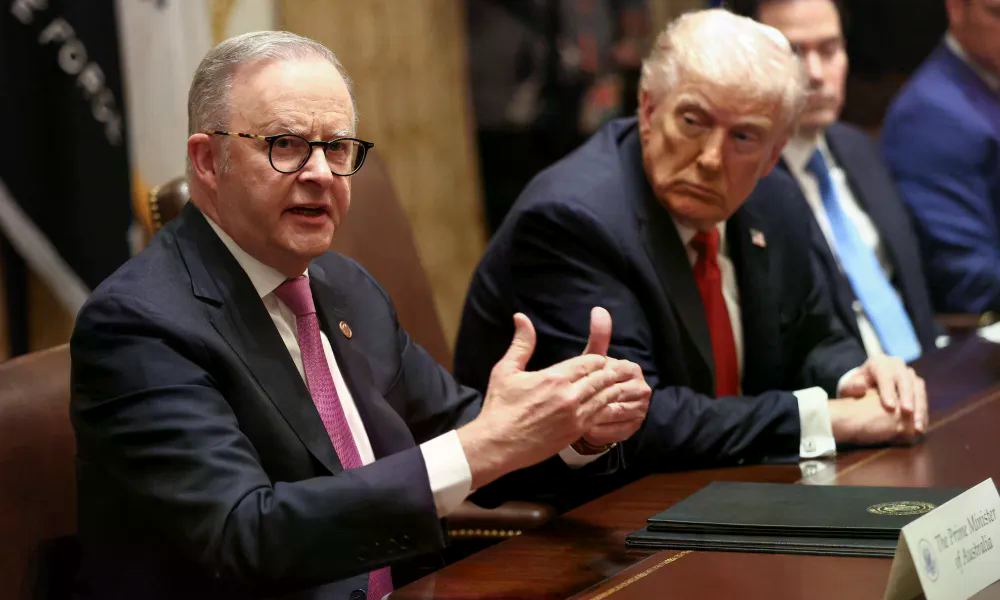
United States President Donald Trump and Australian Prime Minister Anthony Albanese have signed a new agreement focused on rare earth and critical minerals, as global supply chains face increasing scrutiny amid China’s growing influence in the sector.
The deal was finalized on Monday at the White House. According to Trump, the agreement was the result of four to five months of negotiations. The leaders also planned to discuss broader trade issues, submarine procurement, and military equipment during the meeting.
Albanese referred to the agreement as an $8.5 billion pipeline that is “ready to go.” A document released by the prime minister’s office stated that both countries will each invest $1 billion over the next six months into mining and processing projects. Additionally, the agreement includes a minimum price floor for critical minerals, a provision that Western mining companies have long advocated for.
China holds the world’s largest reserves of rare earths, according to data from the US Geological Survey. However, Australia also possesses significant reserves, making it a key player in the global supply of these materials.
In addition to the mineral agreement, the two leaders were set to review the $239.4 billion defense pact reached in 2023 under former President Joe Biden. Under this agreement, Australia plans to purchase US nuclear-powered submarines by 2032 and collaborate with Britain on a new submarine class.
US Navy Secretary John Phelan noted that the US and Australia are working closely to refine the original framework of the trilateral agreement and address ambiguities from the previous version. Trump dismissed these efforts as “minor details,” stating that the project should now proceed without further delays.
Australian officials remain confident that the submarine deal will move forward. Defence Minister Richard Marles recently indicated that he is aware of when the review process will conclude.
Before the meeting, Australian officials emphasized that Canberra is fulfilling its financial commitments under AUKUS, the trilateral military partnership between the US, Australia, and the UK. This includes a $2 billion contribution this year to increase production rates at US submarine shipyards and the preparation to maintain US Virginia-class submarines at an Indian Ocean naval base starting in 2027.
The 10-month delay in high-level discussions since Trump took office has raised concerns in Australia, particularly after the Pentagon urged Canberra to increase defense spending. The two leaders met briefly on the sidelines of the United Nations General Assembly in New York last month.
Australia has expressed willingness to offer shares in its planned strategic reserve of critical minerals to allies such as Britain. This comes as Western governments seek to reduce their dependence on China for rare earths and other essential metals.
Top US officials have recently criticized China’s expansion of export controls on rare earths, calling it a threat to global supply chains. As the world’s leading producer of these materials, China plays a crucial role in manufacturing products ranging from electric vehicles to aircraft engines and military radar systems.
In April, Australia proposed preferential access to its strategic mineral reserve during US trade negotiations, highlighting its intent to play a more active role in securing alternative sources of critical minerals.


